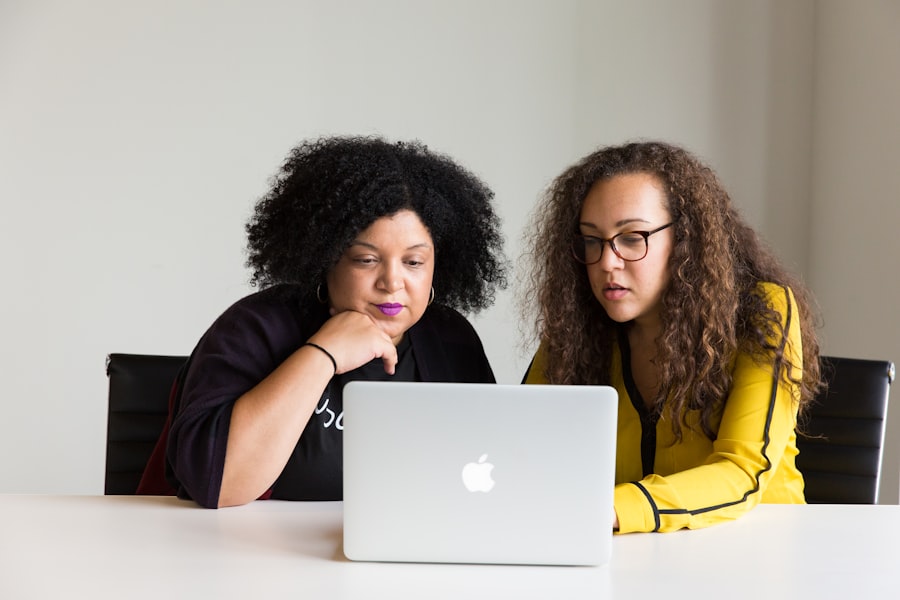
In today’s fast-paced and interconnected world, the significance of teamwork soft skills cannot be overstated. These skills encompass a range of interpersonal abilities that facilitate effective collaboration among team members. Teamwork soft skills include communication, empathy, adaptability, and problem-solving, all of which are essential for fostering a productive work environment.
The ability to work well with others is not merely a desirable trait; it is a fundamental requirement for success in any organization. When team members possess strong teamwork soft skills, they can navigate challenges more effectively, leading to improved outcomes and higher levels of job satisfaction. Moreover, the importance of teamwork soft skills extends beyond individual performance.
Organizations that prioritize these skills often experience enhanced team dynamics, resulting in increased efficiency and innovation. For instance, a study conducted by the Institute for Corporate Productivity found that companies with high levels of collaboration were five times more likely to be high-performing. This correlation highlights how teamwork soft skills contribute to a culture of cooperation and shared goals, ultimately driving organizational success.
In an era where remote work and global teams are becoming the norm, the ability to collaborate effectively across distances and cultures is more critical than ever.
Key Takeaways
- Teamwork soft skills are crucial for success in a diverse environment, as they enable effective collaboration and communication.
- Embracing cultural differences in the workplace leads to a more inclusive and innovative team, as diverse perspectives can drive creativity and problem-solving.
- Effective communication in diverse teams requires active listening, empathy, and adaptability to different communication styles and cultural norms.
- Resolving conflict in a multicultural team involves open dialogue, understanding different perspectives, and finding common ground to move forward.
- Building trust and collaboration in a diverse environment is essential for creating a supportive and inclusive work culture where all team members feel valued and respected.
Embracing Cultural Differences in the Workplace
Cultural differences play a pivotal role in shaping workplace dynamics. In a globalized economy, teams often comprise individuals from diverse backgrounds, each bringing unique perspectives and experiences. Embracing these cultural differences is essential for fostering an inclusive environment where all team members feel valued and respected.
Understanding cultural nuances can enhance collaboration by allowing team members to appreciate varying communication styles, work ethics, and problem-solving approaches. For example, while some cultures may prioritize direct communication, others may value indirect methods that emphasize harmony and relationship-building. Organizations that actively embrace cultural differences can leverage this diversity to enhance creativity and innovation.
When team members feel comfortable sharing their unique viewpoints, they are more likely to contribute original ideas that can lead to breakthrough solutions. A notable example is Google, which has implemented various initiatives to promote diversity and inclusion within its workforce. By creating an environment where employees from different cultural backgrounds can collaborate freely, Google has been able to drive innovation and maintain its competitive edge in the tech industry.
Effective Communication in Diverse Teams

Effective communication is the cornerstone of successful collaboration in diverse teams. It involves not only the exchange of information but also the ability to listen actively and understand different perspectives. In multicultural settings, language barriers and varying communication styles can pose challenges.
Therefore, it is crucial for team members to develop strong communication skills that accommodate these differences. For instance, using clear and concise language can help mitigate misunderstandings, while being mindful of non-verbal cues can enhance interpersonal connections. Additionally, fostering an environment where open dialogue is encouraged can significantly improve communication within diverse teams.
Regular check-ins, feedback sessions, and brainstorming meetings can provide opportunities for team members to express their thoughts and concerns freely. Companies like IBM have recognized the importance of effective communication in diverse teams and have implemented training programs focused on intercultural communication skills. By equipping employees with the tools to communicate effectively across cultural boundaries, organizations can enhance collaboration and drive better results.
Resolving Conflict in a Multicultural Team
| Challenges | Strategies |
|---|---|
| Language barriers | Provide language training, use interpreters, encourage language exchange |
| Cultural misunderstandings | Offer cultural sensitivity training, promote open communication, encourage learning about different cultures |
| Conflict resolution styles | Understand and respect different conflict resolution styles, establish team norms for resolving conflicts |
| Communication differences | Use multiple communication channels, clarify expectations, encourage active listening |
Conflict is an inevitable aspect of teamwork, particularly in multicultural settings where differing values and beliefs may clash. However, how conflicts are managed can significantly impact team cohesion and productivity. Effective conflict resolution requires a nuanced understanding of cultural differences and an ability to approach disagreements with empathy and respect.
Team leaders should encourage open discussions about conflicts, allowing team members to voice their concerns while promoting a culture of understanding. One effective strategy for resolving conflict in multicultural teams is to adopt a collaborative approach that seeks win-win solutions. This involves actively listening to all parties involved and working together to find common ground.
For example, when a conflict arises between team members from different cultural backgrounds regarding project responsibilities, a mediator can facilitate a discussion that allows each individual to express their viewpoint while guiding them toward a mutually beneficial resolution. Organizations like Deloitte have successfully implemented conflict resolution training programs that emphasize cultural awareness and collaborative problem-solving techniques, resulting in improved team dynamics.
Building Trust and Collaboration in a Diverse Environment
Trust is a fundamental element of effective teamwork, particularly in diverse environments where team members may have varying levels of familiarity with one another. Building trust requires consistent effort and a commitment to transparency and accountability. Leaders play a crucial role in establishing a culture of trust by modeling behaviors that promote openness and reliability.
For instance, when leaders share their own experiences and vulnerabilities, it encourages team members to do the same, fostering deeper connections. Collaboration thrives in an atmosphere of trust, as team members feel more comfortable sharing ideas and taking risks. To cultivate this environment, organizations can implement team-building activities that encourage interaction among diverse members.
These activities can range from collaborative projects to social events that allow employees to connect on a personal level. Companies like Zappos have embraced this approach by prioritizing team bonding experiences that celebrate diversity while strengthening relationships among employees.
Leveraging Diversity for Creativity and Innovation

Diversity is not just a metric to be achieved; it is a powerful driver of creativity and innovation within organizations. When individuals from different backgrounds come together, they bring distinct perspectives that can lead to innovative solutions and fresh ideas. Research has shown that diverse teams are more likely to outperform homogeneous ones in problem-solving tasks due to their varied approaches and thought processes.
For example, a study published in the Harvard Business Review found that companies with higher diversity levels were 35% more likely to have financial returns above their respective national industry medians. To leverage diversity effectively for creativity and innovation, organizations must create an environment that encourages experimentation and risk-taking. This can be achieved by implementing brainstorming sessions where all ideas are welcomed without judgment or criticism.
Additionally, organizations should celebrate successes that arise from diverse collaboration, reinforcing the value of different perspectives in driving innovation. Companies like Procter & Gamble have successfully harnessed diversity by creating cross-functional teams that combine expertise from various fields, resulting in groundbreaking products that cater to a global market.
Empowering and Supporting Diverse Team Members
Empowering diverse team members is essential for maximizing their potential and contributions within an organization. This involves providing opportunities for professional development, mentorship, and leadership roles that reflect the diversity of the workforce. Organizations should actively seek to identify and eliminate barriers that may hinder the growth of underrepresented groups within their teams.
For instance, implementing mentorship programs that pair junior employees with experienced leaders can help foster career advancement while promoting inclusivity. Moreover, organizations should prioritize creating pathways for diverse voices to be heard in decision-making processes. This can be achieved by establishing committees or task forces that include representatives from various backgrounds who can provide insights into the unique challenges faced by different groups within the organization.
By empowering diverse team members to take on leadership roles and contribute to strategic discussions, organizations can create a more equitable workplace where everyone feels valued.
Creating Inclusive Work Environments for All
Creating inclusive work environments requires intentional efforts at all levels of an organization.
This can be achieved through comprehensive diversity training programs that educate employees about unconscious biases and cultural competencies.
Such training helps foster awareness and understanding among team members, enabling them to appreciate the value of diversity in the workplace. Additionally, organizations should implement policies that support work-life balance and accommodate the diverse needs of their workforce. Flexible work arrangements, parental leave policies, and mental health resources are essential components of an inclusive environment that recognizes the varied circumstances of employees’ lives.
Companies like Salesforce have made significant strides in this area by prioritizing employee well-being through initiatives that promote mental health awareness and provide resources for work-life balance. By creating inclusive work environments where all employees feel supported and valued, organizations can unlock the full potential of their diverse teams while driving overall success.
In exploring the essential soft skills for career advancement, it’s important to consider how diversity awareness plays a crucial role in fostering effective teamwork. A related article that delves deeper into the realm of essential soft skills, particularly critical thinking, can be found at WorkSkills Pro: Critical Thinking. This article provides insights into how critical thinking complements diversity awareness by enabling team members to evaluate diverse perspectives critically, leading to more innovative solutions and a more inclusive work environment. Understanding and integrating these skills can significantly enhance teamwork and overall business success.
FAQs
What are soft skills in the context of teamwork and diversity awareness?
Soft skills in the context of teamwork and diversity awareness refer to the interpersonal skills and attitudes that enable individuals to work effectively with others from diverse backgrounds. These skills include communication, empathy, collaboration, and cultural awareness.
Why are soft skills important in the workplace?
Soft skills are important in the workplace because they contribute to a positive work environment, effective teamwork, and the ability to work well with diverse colleagues and clients. They also play a crucial role in building strong relationships and fostering a culture of inclusivity and respect.
How can individuals develop their soft skills in teamwork and diversity awareness?
Individuals can develop their soft skills in teamwork and diversity awareness through training programs, workshops, and seminars that focus on communication, empathy, cultural competence, and conflict resolution. They can also seek out opportunities to work on diverse teams and engage in activities that promote understanding and appreciation of different perspectives.
What are the benefits of having strong soft skills in teamwork and diversity awareness?
The benefits of having strong soft skills in teamwork and diversity awareness include improved collaboration, better problem-solving, increased creativity, and a more inclusive and supportive work environment. These skills also contribute to higher employee satisfaction and retention, as well as better relationships with clients and customers.





